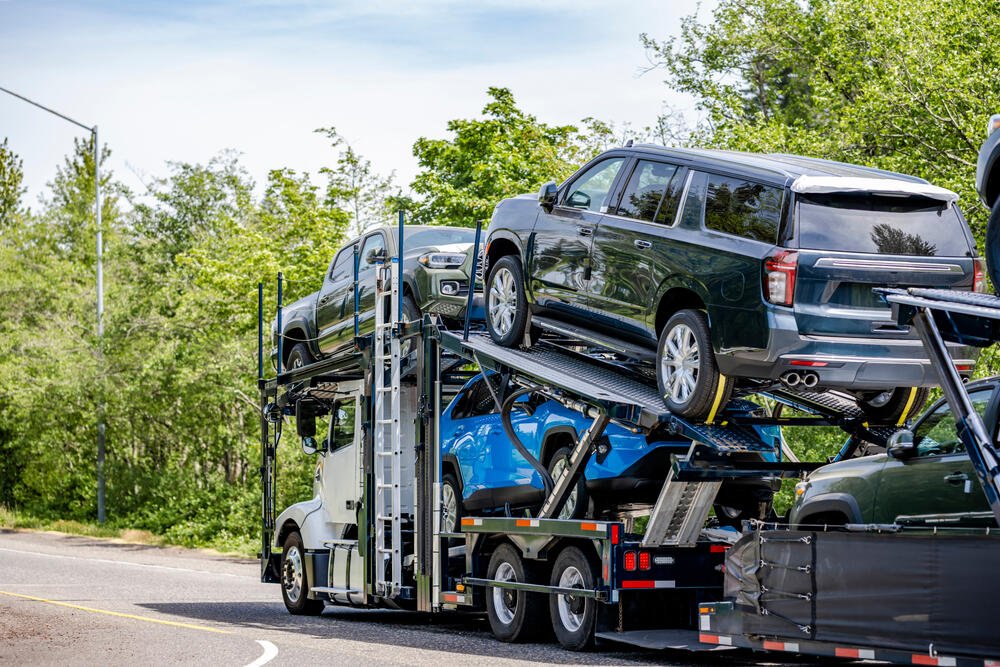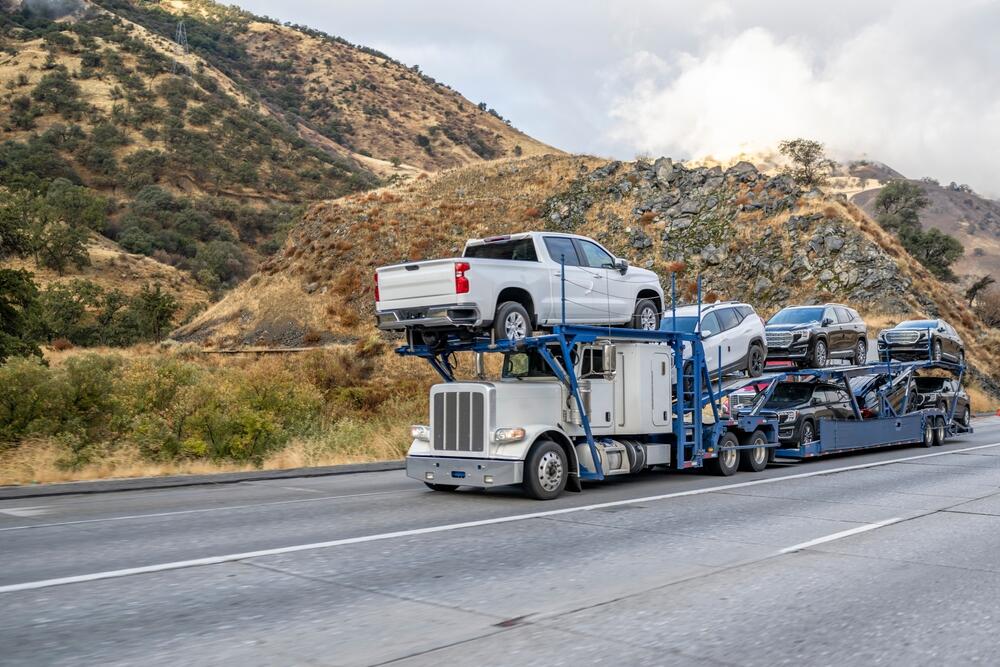
Are you moving to a new state with your car? Planning to ship it across the country instead of driving it?
That's a great way to save time and money, but before entrusting your vehicle to the shipping pros, you should be mindful of the most common risks involved.
Shipping a vehicle is not like sending a letter. Anything could happen, from delays in delivery times to cars getting damaged in transit. Even if you select the greatest company, there is no assurance that your automobile will arrive in excellent condition.
What are these risks? How can you plan the best way possible for them?
In this article, we'll talk about the top 5 biggest risks when shipping a car and how to expand your planning procedures by getting our expert tips and tricks.

Top 5 Biggest Risks
With this guide, our hope is to inform you of the biggest risks associated with transporting your car, so you can prepare and ultimately avoid these problems to the best of your abilities.
The top five most common risks associated with shipping a car include:
- Damage to the vehicle
- Theft
- Late delivery
- Insufficient insurance
- Hidden or additional costs
There are many things that can go wrong that result in damage to your vehicle during transportation due to unexpected events like bad weather, accidents, and more.
Theft is another major risk associated with shipping passenger cars overseas or across the country. Cars can be stolen during transport if proper security measures aren’t taken or if they fall into the hands of an unscrupulous broker or transporter.
Late delivery is another common risk when shipping cars abroad or domestically. Delays due to bad weather, traffic or a traffic crash can cause deliveries to arrive late which can result in additional fees or worse yet.
Insufficient insurance coverage is another risk when shipping a car. Always make sure to check that the transporter or broker you’re using has the right type of insurance to cover any potential damages or losses during transport.
Finally, some brokers/transporters may tack on additional fees for services that were not previously discussed upon booking which could add unexpected costs onto your bill at the end of the journey.
The following not only identifies the risks, but suggests tips and tricks to avoid these problems.
Risk 1: Damage to the Vehicle During Transportation
Damage or loss of the motor vehicle during transportation is one of the most significant risks when shipping a car. To preserve your vehicle, take extra precautions to ensure it is correctly fastened on the truck and remains in good condition throughout the voyage.
You should also document any existing damage on the vehicle before shipment and keep a copy of all paperwork related to your shipment.
If possible, consider purchasing additional insurance coverage to protect against any losses associated with damage or theft during transit.
Common causes of damage during transport
Damage during transit is one of the most frequent risks when exporting an automobile, which several variables can cause.
One of the leading causes is inadequate vehicle preparation before shipment, as follows:
- Isn't adequately secured to the truck
- Poor road conditions
- Bad weather
- Improper handling on and off the trailer
- Motor vehicle crashes
Time to review our tips for reducing the risk of damage.

Tips to reduce the risk of damage during shipping
Moving an automobile may be stressful since there is always the possibility of damage or loss throughout the transit procedure.
These steps you can take to reduce your risk, such as:
- Good reputation and experience in safely transporting cars
- Experienced and additional training of qualified drivers
- Inspect the trailer before loading your car
- Make sure it is properly secured
Following these tips will help ensure that your motor vehicle arrives at its destination in perfect condition.
Risk 2: Theft
One of the most significant risks when shipping a car is theft. Motor vehicle theft can occur during transit if proper security measures are not taken or if they fall into the hands of an unscrupulous broker or transporter.
To ensure your car safely arrives at its destination, it's essential to research and uses reputable brokers and transporters with security protocols in place.
Follow our tips to reduce the risks of theft.
Tips to prevent vehicle theft during shipping
Shipping an automobile may be a significant endeavor, but it can also be dangerous if adequate safeguards are not taken. The most excellent approach to preventing car theft is to ensure that it is adequately secured during the transportation procedure.
Here are some pointers to keep in mind to help maintain your automobile safe while in transit:
- Choose an enclosed carrier if possible. Opting for an enclosed carrier will provide added security for your vehicle instead of an open-air option.
- Disconnect the battery and other electronics before shipping. This will help prevent theft by disabling any alarm systems installed on the car.
- Remove all valuables from the vehicle before shipping it off. That includes anything from loose change to personal documents or photographs – take it all out.
- While loading the automobile onto the truck for travel, double-check that all doors and windows are closed and fastened. This will help guard against anyone tampering with the vehicle once it has been loaded for shipment.
- Select a company with live GPS tracking to assist with tracking your shipment.
Following these guidelines will help prevent your vehicle from being stolen during transportation and verify that it arrives safely.
Risk 3: Late Delivery and Unreliable Shippers
When shipping a car, one of the significant risks is dealing with unreliable shippers who may not deliver on time or even at all.
Late delivery can cause stress and frustration while waiting for your car to arrive. To avoid this risk, it's critical to research and choose a reputed vehicle shipping provider.
Doing your due diligence before hiring a shipper or transporter will help ensure your car arrives safely and sound at its destination.

How to spot an unreliable carrier company?
Here are some tips to spot an unreliable shipper.
Look for companies that are members of:
- American Moving & Storage Association (AMSA)
- Better Business Bureau (BBB)
- Meet U.S. Department of Transportation requirements
- Positive reviews from past customers
- Avoid any companies without reviews or with primarily negative reviews
- Does their website look professional?
- Do they offer insurance in case anything happens during transit?
- Make sure they answer all of your questions about shipping and transport
These organizations provide certifications that mean that these companies have met specific guidelines of operation and customer service standards.
If your prospective shipping company doesn't meet all of these requirements, they won't be reliable.
Risk 4: Insufficient Insurance Coverage
Insurance is a vital aspect of transporting an automobile. You want to ensure that your car is covered for any damages or losses that may occur during transport.
Ensure you read through the policy thoroughly and ask questions if you don't comprehend something. It's also a good idea to get a copy of the procedure to reference it in case anything unexpected happens during shipping.
Finally, keep all documentation related to your insurance policy handy in case you need to file a claim later on down the road.
Insurance coverage available for auto transports
Auto transport insurance coverage is a must when shipping your car.
There are several types of insurance coverage available, here are some examples:
- Cargo insurance
- Total loss coverage
- Declared value insurance
- Liability coverage
- What is the deductible?
Cargo insurance covers the car's value and will cover any loss or damage caused while in transit.
Total loss coverage covers any complete losses of the vehicle while in transit.
Declared value insurance covers up to the declared amount on the policy, while liability coverage protects against third-party damages.
Check to see if there are any deductible fees when submitting an insurance claim.
Understanding what type of coverage you have and what it covers so you can rest assured that your car is protected from any unforeseen risks during transport.

Risk 5: Getting Caught Out by Unexpected Fees
There are sometimes additional expenses involved with transporting an automobile.
These can include:
- Pick-up and drop-off fees
- Storage fees
- Fuel surcharge
- Additional insurance coverage
- Tolls
- Taxes
Be aware of these potential costs upfront and ask the carrier company about them before you commit to anything.
Read through the company's contract carefully to avoid any surprise fees later on. Factoring in the cost of insurance when shipping a car will help protect your vehicle from any potential risks during transit.
Reduce the Risks
Reduce the risks by hiring an experienced shipping company such as A1 Auto Transport. We have been in business for over 35 years and now serve over 190 countries; this can give you confidence that you're dealing with a veteran in the shipping industry.
Start the shipping process and get a free quote today.






 Share on Facebook
Share on Facebook Share on LinkedIn
Share on LinkedIn Share on Twitter
Share on Twitter




 Google
Google  Instagram
Instagram  Trustpilot
Trustpilot 



